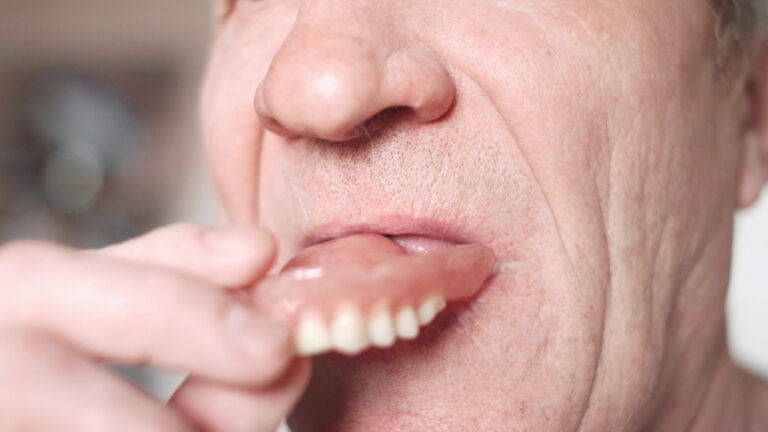What are wisdom teeth and why are they removed?
Wisdom teeth are the third and final set of molars that erupt in the very back of your mouth during late adolescence or early adulthood, typically between the ages of 17 and 25. Most people have 4 wisdom teeth, one in each corner. The wisdom teeth are the last teeth to come in and complete the set of 32 permanent adult teeth.
Wisdom teeth often do not have enough room to emerge properly due to lack of space and can become impacted, coming in at an odd angle or only partially breaking through the gums. Partially erupted wisdom teeth create a prime environment for bacteria to flourish, raising the risk for cavities and gum disease. The awkward positioning can also damage adjacent teeth and jawbone over time.
Extraction is recommended even if wisdom teeth are not currently problematic to avoid future complications. Oral surgeons perform wisdom tooth removal under local anesthesia, numbing the area during surgery. Sedation or general anesthesia may be used for more complex extractions or fearful patients. The recovery period after wisdom tooth removal is roughly 3 to 7 days.
Why can’t you talk after getting your wisdom teeth out?

After wisdom tooth extraction, you will most likely experience difficulty speaking normally for the first few days. There are several key reasons it can be hard to talk following surgery:
Swelling around the extraction sites
Swelling is unavoidable as your body’s natural reaction to the surgical trauma of tooth removal. The inflammatory response kicks in to protect the area as it starts healing. Fluid rushes to the soft tissue around the extraction sites, causing significant swelling and puffiness that peaks at 2 to 3 days post-op.
Your cheeks balloon up around the back molars. It can also swell under your tongue. This swelling makes it very hard to move your mouth as needed for speaking. Even simple consonant and vowel sounds are challenging.
Numbness in mouth and tongue
Typically wisdom tooth removal is performed under local anesthesia such as lidocaine or novocaine injections to numb the surgical site. As the numbing medication wears off over several hours, your tongue, lips, gums, and inner cheeks can still feel very numb and tingly.
This distorted sensation and lack of fine motor control over your mouth muscles greatly affects your ability to enunciate words and speak coherently. The residual numbness gradually subsides within 24 hours but can linger longer after extensive procedures.
Pain and discomfort
There is invariably some degree of pain following wisdom tooth extraction, ranging from mild soreness to more severe throbbing pain. While over-the-counter medications can help manage the pain, any movement of your tender mouth and jaw requires use of the affected muscles surrounding the surgery sites.
Attempting to talk requires flexing these sore muscles, which quickly proves too painful when you are at your worst post-op pain on days 2 and 3. To avoid aggravating the pain, you instinctively limit speaking.
Difficulty fully opening your jaw
Normally your jaw opens wide enough for your mouth to accommodate a few fingers vertically. But after wisdom tooth extraction, the surgical trauma and swelling of your jaw muscles greatly restricts motion.
Your jaw feels tight and stiff with a limited range of mobility. Maximum comfortable opening is reduced to one or two finger widths during initial healing, which is not enough range to move your mouth freely to form words.
Bleeding into the surgical sites
Although some minor bleeding is expected after extraction, heavy bleeding can be problematic. Aggressive rinsing or spititng too forcefully can dislodge a fragile blood clot trying to form in the socket, causing excessive bleeding.
The mouth fills up with blood, which you must carefully spit out rather than swallow. This constant oozing makes speaking virtually impossible until it slows down. A dressing may be placed to put pressure on the area to control bleeding.
Sutures restricting motion
Many wisdom tooth extractions require stitches to close off the surgical site, which can sometimes extend onto adjacent gum tissue, the inside of your cheek, or under your tongue. These sutures inevitably limit how wide you can open your mouth, affecting your ability to move your lips and tongue.
This restricted mobility makes proper enunciation very difficult. Even spreading your mouth open wide to yawn or retrieve a bite of food can be impeded by tight sutures, much less talking.
Avoiding dry socket
Dry socket is a dreaded complication that occurs when a blood clot fails to adequately form in the socket after extraction. To lower risk of dry socket, oral surgeons advise refraining from excessive motion and disturbance around the surgical sites for the first 5 days or so post-op.
This means limiting actions like talking, yawning, brushing near the wisdom teeth, and even spitting too forcefully. Any such movement risks dislodging the fragile clot trying to develop and triggering a dry socket.
When can you start talking again after wisdom teeth removal?

Talking capability usually starts to return about 5 to 7 days after wisdom tooth extraction and progresses as follows:
- Day 1 – 3: Severely limited verbal communication. Use gestures or write things down.
- Day 3 – 5: Swelling starts improving. Can attempt brief, gentle speech but still difficult.
- Day 5 – 7: Talking gets easier as pain and swelling continue to decrease.
- Day 7 – 10: Experience only mild discomfort with prudent talking.
- After Day 10: Most can converse normally with minimal pain. Swelling gone.
However, your individual timeline for regaining speech depends on factors like:
- Number of impactions – More teeth removed means more swelling.
- Depth and angle of impactions – Complex extractions cause more trauma.
- Surgical methods used – Was bone removed? Stitches placed?
- Rate of healing – Young healthy adults may heal faster.
- Pain tolerance – Those more sensitive to pain take longer.
- Medications used – Steroids speed healing.
Let your body guide you – don’t force speech until mouth is ready. Seek emergency care for heavy bleeding or worsening swelling.
Tips for communicating after wisdom teeth removal

Here are some tips to help you effectively communicate during the recovery process:
- Use hand gestures like thumbs up/down to answer simple questions.
- Nod or shake your head instead of speaking if possible.
- Write things down on paper, whiteboard, or notepad app on phone.
- Use text messages, email, or messaging apps to communicate.
- Speak very softly, slowly, and deliberately if you must talk.
- Take steady breaths and pause between words to conserve energy.
- Apply ice packs to jaw and cheeks to reduce swelling.
- Use OTC anti-inflammatories (ibuprofen) and pain meds.
- Eat cool, soft foods to avoid chewing. Frozen yogurt or apple sauce.
- Stay hydrated – drink room temperature water, no straws.
- Sleep propped up on pillows to minimize facial swelling.
- Set phone to voice-to-text mode or use speech-to-text apps.
- Avoid extensive phone conversations – stick to essential talk.
- Gently massage jaw muscles after 5 days to relax muscles.
- Humidify room air to avoid dry painful throat and mouth.
When to call your oral surgeon after wisdom teeth removal
Call your oral surgeon promptly if you have:
- Bleeding – Soaks multiple gauze pads or lasts over 4 hours.
- Severe pain – Throbbing pain not relieved by medication.
- Increasing swelling – Facial swelling worsening after day 3.
- High fever – Over 101 F that won’t subside with medicine.
- Numbness – Persistent numbness beyond 24 hours.
- Bad taste – Foul breath and unpleasant mouth taste signalling infection.
- Dry socket – Intense throbbing pain flaring up a few days after surgery.
- Difficulty breathing – Obstructed airway impeding breathing.
- Nausea/vomiting – Repeated vomiting more than 24 hrs after surgery.
- Allergic reaction – Hives, rash, itching could indicate reaction to antibiotics.
Your surgeon can assess for potential complications and provide appropriate treatment to address any concerning symptoms arising after wisdom tooth removal.
Frequently Asked Questions about talking after wisdom teeth removal
1. How long after wisdom teeth removal can I talk normally?
Most patients take a full 7 to 10 days to regain normal comfortable speech ability after wisdom teeth extraction. With an easy, non-impacted wisdom tooth removal, you may progress faster and talk normally within 5 days.
2. When can I start talking on the phone after wisdom teeth removal?
Avoid extended phone conversations for at least the first 5 to 7 days after surgery. Any prolonged phone calls will likely strain your facial muscles at a time when rest and healing are critical. Wait until the second week if possible.
3. How long will my face stay swollen after wisdom teeth removal?
It is normal for swelling to peak at days 2 to 3, remain significant for 5 days, start improving by day 7, and mostly resolve within 7 to 10 days. Some minor swelling can persist up to 2 weeks or more in a small number of patients.
4. When can I resume normal activities like work or school after wisdom teeth removal?
Most patients take at least 1 week off work or school to recover. You may feel able to return by days 5 to 7 but may lack energy or focus. It’s best to wait until days 7 to 10 to fully resume all normal activities.
5. How soon after wisdom teeth removal can I exercise or play sports?
Avoid strenuous activity for at least 1 week after wisdom tooth removal to prevent dislodged clots. Gentle walking can start after a few days. Jogging, weightlifting, sports should wait 2 full weeks for adequate healing.
Summary
The first week after wisdom tooth extraction is marked by difficulty speaking due to swelling, numbness, pain, and other factors. With patience, good oral care, and adherence to your surgeon’s instructions, your ability to talk should steadily improve within 7 to 10 days. Seek prompt medical attention for any worrisome symptoms impacting your recovery. Most are able to return to normal speech and resume routine activities within two weeks after surgery.







